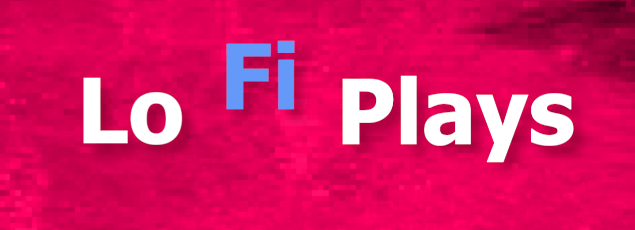
Lo-Fi Plays is aseriesinwhich I look at a grab bag of ultra-low-budget independent titles you probably haven't played before. With any luck, we can find some new games and new ideas among them. Here are five wee, weird, and wonderful finds.
Baba Files Taxes
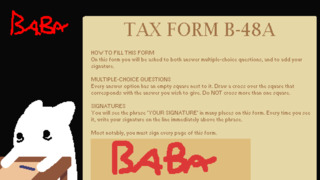
In its difficulty, Arvi Teikari's Baba is You holds no punches. It's only thematically consistent that its sequel, Baba Files Taxes, puts the fluffy rabbit protagonist to another confounding exercise: reporting our finances to the government. And Baba Files Taxes isn't an unlicensed fan game; it's an official spin-off by Teikari. This comedy sends up the cryptic and strictly prescriptive language of tax documentation. Everyone knows what a tax form is, but no one knows what they're saying, leaving us feeling like we all have a tiny bunny brain. Putting its finger on that inscrutability, Baba Files Taxes does mark you on aptitude, but you won't find out what it's scoring until the end.
The game is short and simple, meaning it would be easy to spoil its surprises in a couple of clumsy sentences. But without giving too much away, this bitesize experience understands official papers as an exam on syntax and language comprehension. And it keeps you cycling through this activity of writing Baba's signature. Video games rarely grill our handwriting skills, but trying to scrawl out something approaching text with my slippery mouse, I end up doing a pretty good impression of the protagonist. The game jokes about how our signature is accepted as a proof of our usness even when no two signatures are identical. Plus, Baba Files Taxes is an excuse to look at more adorable pictures of Baba, and that's a win in my book.
Baba Files Taxes is "name your own price" on itch.io.
A Date in the Park
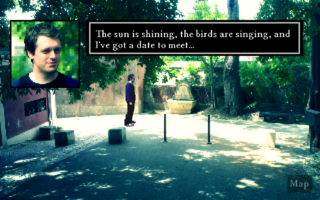
Last year, gothic folk adventure, The Excavation of Hob's Barrow, earned itself a tight-knight but fervently supportive fandom. And there's more where that came from. Developer, Cloak and Dagger, has a whole back catalogue of point-and-click adventures, including a few free appetisers. Of the freebies, A Date in the Park is probably the most lauded. Its protagonist is Lou, an optimistic lovebird who has spent a week in Lisbon without a lick of Portuguese. He is following up on a beautiful woman's invitation to a local wildlife spot. Hapless and tactless, Lou is the epitome of the oblivious adventure game lead. As is par for the course, the cluelessness of the player character means they need our help to decode the riddles around them. In this case, it also forcefully pushes the game away from straight horror into black comedy.
While most horror audiences find themselves screaming at the protagonist to escape an obvious trap, there's a sympathetic resignation in knowing that Lou isn't bright enough to do that. In comparison to the graphics of Cloak and Dagger's other fare, A Date in the Park is more realistic but is still distorted with a pixelating filter. Crawling up my spine throughout the game was the uncomfortable feeling of looking at real events through a cypher. The experience enters an uncanny valley in which a full comprehension of the world is as unattainable for you as it is for Lou, and that creates a wariness of the unknown.
Even players acclimatised to the fetch quests and hidden breadcrumbs of adventure games may find A Date in the Park meandering. Nerd culture communities can be hasty to declare "nothing is happening" in a work when really there's plenty happening on a personal and subtle level. However, in this one case, the game does stretch its exposition and character interactions until they're translucent. Yet, I can't imagine a version of it that doesn't put its whole ass into its slow pacing and tranquil atmosphere because the mundanity is part of the horror. The park is quiet; too quiet. It's also naturally ideal; too ideal. Its pathways and ponds are garlanded by locks of overgrown foliage that I feel could reach out and strangle me. The visual style makes full use of the human eye, which sees more shades of green than any other colour. Off the park's winding trails, there are statues referencing mythological deities and barely maintained buildings that contain... Well, I'll leave you to find that out for yourself.
A Date in the Park is free on Steam and "Name your own price" on itch.io.
Machinaria
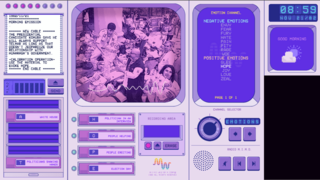
Not to be confused with Amanita's Machinarium, Machinaria is a VHSpunk dystopian drama. Following in the footsteps of Papers, Please, it's a game pulling back the curtain on the full scope and skullduggery of authoritarian regimes. It does that by stationing you at the desk of one essential job in a repressive administration. In Papers, Please, your office was passport inspection; in Machinaria, it's news editing. Every day, orders clank down the chain of command, telling you what public opinions to launder. You then must then place video tapes into the proper slots to produce a programme that tugs hearts and minds in that direction.
Machinaria's CRTs are peepholes into anti-democratic coercion. We might call the game an analogue horror experiment, but that badge is usually reserved for titles that disturb through 90s-era polygon counts or tape artefacts. In Machinaria, the horror is an uncomfortable reminder of the propagandistic powers that arose with electronic media distribution. Here, you are detached from the targets of your psychological weaponry, and there's inhumanity in that distance. The lack of modern software tools that let you click and drag your way to political control also means that Machinaria is very hands-on. Papers, Please had us shuffling manuals and identification in a bid to organise our workspace, and Machinaria does the same thing with storage devices, likewise creating an air of busyness.
I do wish that the play of this game more closely resembled TV production or twiddling the knobs of political power. Rather than weaving national illusions, Machinaria is about getting to play with a Fischer-Price Consent Manufacturing Machine. It lets you hear the clunk of the tape as you push it into its recorder and the tinny whirr of a dot matrix printer, both of which sound brilliant here. Above all, by involving us in the editing of current events programming, Machinaria instils that news isn't something discovered, but constructed, and that even objective records of real events can be exploited in the name of disinformation.
Machinaria is "Name your own price" on itch.io.
The Password Game
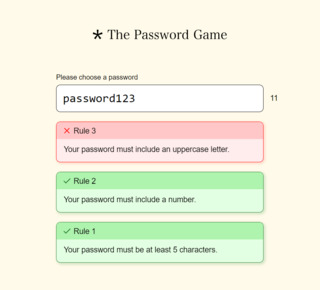
The website neal.fun is an animated science, history, and philosophy magazine. It's keeping the spirit of Flash alive with HTML 5 toys. There's an interactive scale diagram of the sky and a personalised stats screen that tells you, among other details, how many red blood cells your body has grown since you were born. It's a site for the XKCD-heads out there. Neal's latest creation is The Password Game, a comedy about trying to twist and squeeze a prospective password through all the security rules a site can come up with.
The requirements start off undemanding: Your passcode must be at least five characters in length and contain an uppercase letter, which sounds pretty reasonable, but before you know it, you're entering today's Wordle answer and doing sums with Roman numerals. Like Frog Fractions, The Password Game is pushing the boundaries of how silly one game can get, sending you on a scavenger hunt that keeps one-upping expectations for its absurdity. Even when it was frustrating, I found the temptation to keep playing irresistible because I had to know what dumbass surprise was next.
What makes The Password Game tricky is that all the rules for your string are in play at once. You can make a modification to your password to obey a new law and realise you just broke some article from five steps back. It's a structural departure from the other puzzle games out there. Storyteller or Manifold Garden might have you spinning multiple plates at once, but in those titles, you usually complete one level and move on to the next, able to put the systemic configurations from the last level behind you. In The Password Game, every puzzle is stacked atop the previous, soon leaving you at the top of a tower of conditions, suffering from linguistic vertigo.
The Password Game is free on neal.fun.
KIDS
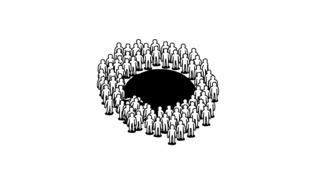
KIDS's Steam blurb is only four mysterious words: "A game about crowds". That might sound too vague to rest a purchasing decision on, but you can find other products that describe themselves in whole paragraphs and don't come as close to complete summarisation. To add a little definition, KIDS is a game about how people organise themselves into, within, and away from crowds. Inside its minimalist packaging is a reel of interactive cartoons about featureless monochrome people. Clicking or dragging on one of them can cause any of these meeple to change their pose, the direction they're running in, or some other aspect of their character. These metaphorical stick figures gather into crowds to create superorganisms whose characteristics can't entirely be found in any one member. They move with a nerd instinct or applaud as an audience.
KIDS's scenes don't usually have a resolution; they each cut hard and without warning into the next because they're cross-sections rather than stories, all sating the developer's anthropological curiosity. When the game does teleport us between gatherings, it's often from raucous clamours to pregnant quiets and back again. The characters speaking in the voice of children is a commentary that learning how to relate to collectives is an essential part of childhood development, which child psychologists have been reporting for a long time. With individuals churned through bulging tubes and emerging from wet membranes, the game sees the organising and migration of crowds as something biological.
KIDS is an animators' animation. There's no scripting to speak of, no three-act narrative in sight; it's all people moving on a page, and they do so predictably once you learn the patterns. For most, the social groups are fate: a stream that delivers each pebble from spring to sea. But that's not to say that the game is indulgently cynical about crowds. Sometimes free will gets lost in the shuffle, sometimes people push each other into a hole, but the groups are also impressive examples of spontaneous organisation, and there are loners who swim against the tide.
KIDS is $2.49 on Steam and $2.99 on itch.io.
___
That's us done for another week. Thanks for reading.
Log in to comment